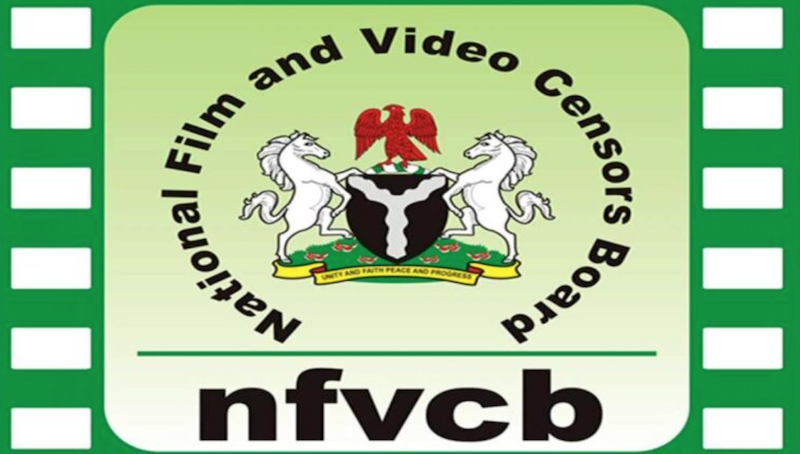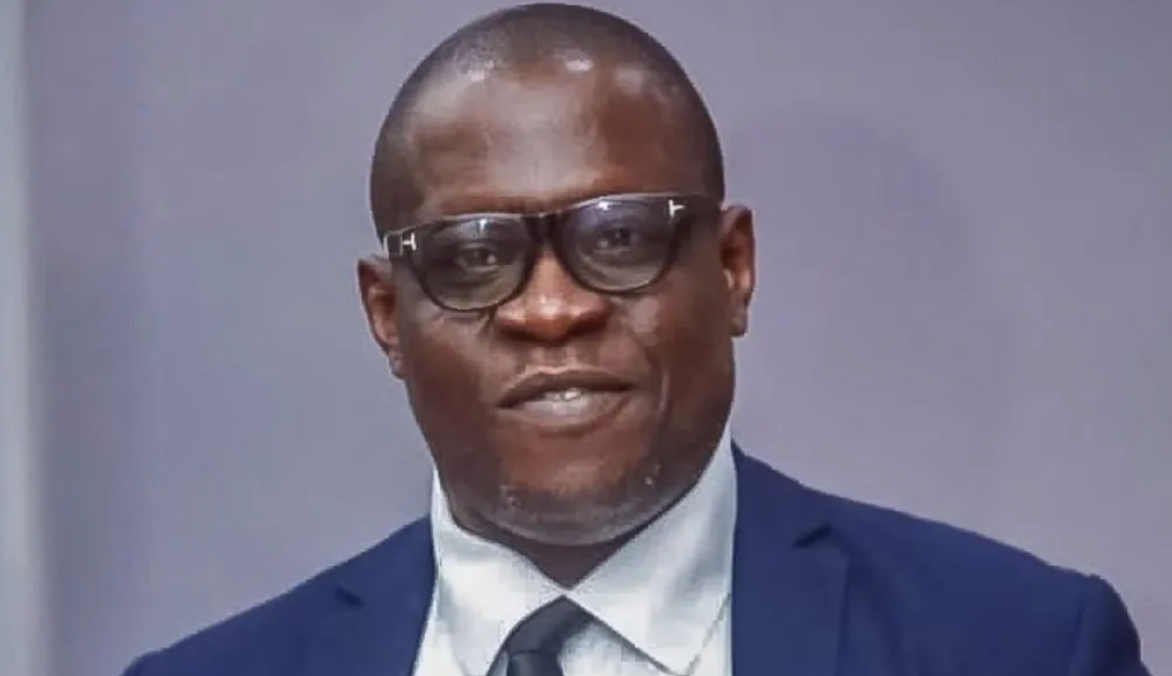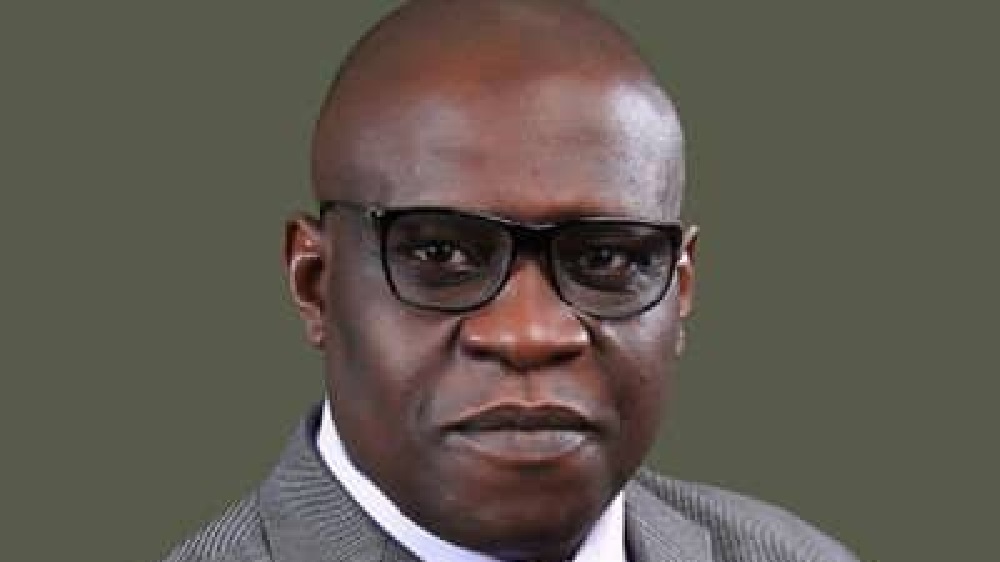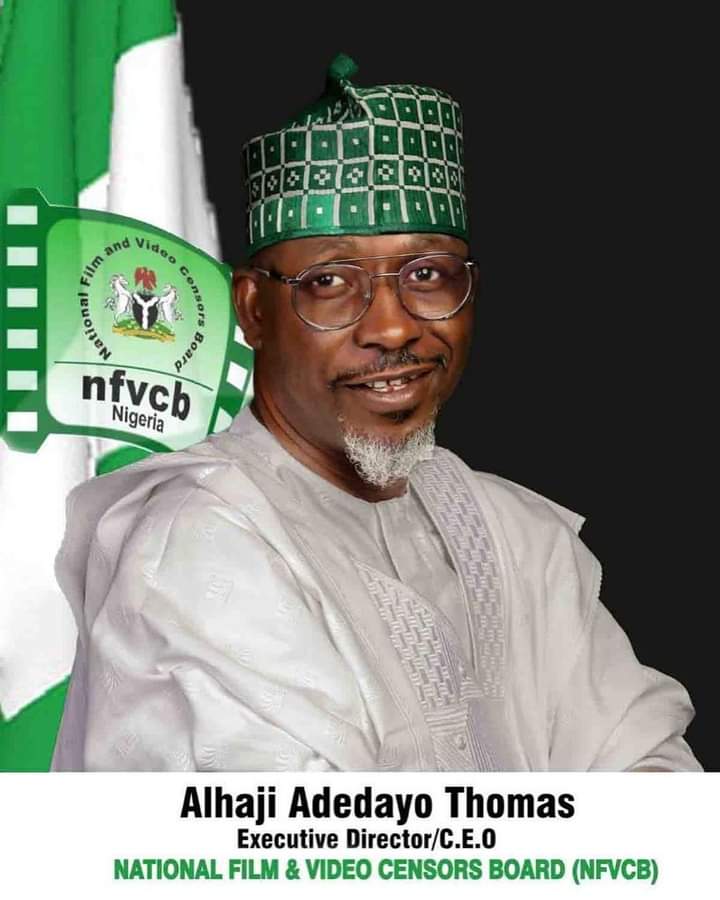Alhaji Adedayo Thomas, the Executive Director/Chief Executive Officer, National Film and Video Censors Board (NFVCB), has advised practitioners in the creative industry to invest in insurance against future life emergencies.
Thomas gave the advice at the ongoing third Nigeria Digital Content Regulation Conference (NDCRC) in Lagos.
The NFVCB’s boss, who decried situations where members turned beggars, especially when medically challenged, said that practitioners must be insured to cater for unforeseen emergencies.
“We should not at anytime ignore insurance. It is for all of us in creative industry.
“I have never read where ICAN, NMA, NBA put in the newspapers that they were looking for funds to take care of one of them.
“We are not beggars; we are contributing to the economy, we must be wise within ourselves.
“We have been very careless with ourselves, we have to be frank. Part of the production cost should include insurance for all, even for a caterer who works within the production.
“We, in the film industry form the majority employers of labour anywhere in the world, so there are lot of hazards that can happen within and outside film production.
“We have to be including insurance package in the production cost.
“It safeguards us so that we won’t be clapping our hands and begging all around, when our members have issues. We should be able to protect ourselves,” he said.
He advised stakeholders to self regulate their activities in line with the nation’s values and laws.
“Do we actually need the government to regulate our day-to-day life? No.
“But, how can we say no if we have not morally developed ourselves to understand the basis of life. Moral culture needs to be rebuilt.
“The children need to be protected. We need within ourselves to understand the fact that to have self regulation, we need to broaden the scope of what we chunk out.
“Self regulation will stimulate more investment opportunities.
“Self regulation is to empower the association to look into a film and give it classification.
“We must, in the first instance, discipline ourselves as individuals and an association so that we will know whether what we are classifying is acceptable or not.
“We can manage our lives and businesses without strict regulations by the government.” he said.
He added that self regulation had been adopted in South Africa and would soon be accepted in Kenya.
Thomas recalled that the board decided to bring key industry players, policy makers and entrepreneurs together in 2021 to chart a common front toward repositioning Nigeria’s highly esteemed film industry.
He said that the first edition focused on streaming services, and the need to bring balance and equity to the ecosystem, especially with the disruption of the digital era.
He revealed that the purpose was to create a platform for robust dialogue between the government, through the regulator and the Video-on-Demand platform, led by the Over-The-Top Streamers.
The NFVCB CEO added that in the second edition in 2022, the board expanded the scope of the conversation beyond censorship to, among others, basically dissect and evaluate conversations and agreements reached at the previous edition.
According to him, the objective of the third edition of the NDCRC is to primarily discuss the growth of the film industry and evaluate concerns around global standards for regulation of digital contents in the face of advances in the development of cutting-edge technologies.
“Our goal is to ensure orderliness, national security and promote global peace without undermining inherent investment opportunities and enhancement of economic rewards for all practitioners and stakeholders.
“In the light of the global socio-economic and political dynamics and the influence of roles played by digital operators, we anticipate that the decision and discussions in this conference will guide us in crafting policies that nurture creativity and collaboration without imposing undue restrictions.”
According to him, dialogue open avenue for potential partnership between film makers and streamers, for the purposes of enriching the possibilities within the industry as an economic sector.
He said that the regulatory dialogue was to help the streamers to thrive while obliging to protect Nigerian audience from harmful or offensive content or materials.
Emphasising the need for practitioners to belong to professional association, Thomas said streamers must not deal with anyone who was not a member of a professional association no matter how talented.
“We are committed to safeguarding the inherent economic values within the entertainment and creative industry,” he said.
He noted that like in other professions, there were bad eggs within the creative industry, which he said the security agents also needed to deal with.
The Chief Host and Minister of Arts ,Culture and the Creative Economy, Hajia Hannatu Musawa, who expressed delight in the event, assured stakeholders of President Bola Tinubu’s focus in promoting an attractive investment and partnership in and to Nigeria.
Musawa, who was represented by Mr Baba Agba, the Senior Special Assistant on Films, Videos and Musicals, said that the president was keen on creating the right framework that encouraged ease of doing business to achieve nation ‘s aspirations for this sector.
“Nigeria will continue to provide the enabling environment for digital businesses to thrive,” she said.
Also speaking, Chairman, House of Representatives Committee on Culture and Tourism, Mr Kareem Abisodun, who described the conference as apt, said that all discussions had encapsulated the realities of all opportunities, challenges and the way forward for creative digital contents.
According to Abisodun, Nollywood produces an average of 1,500 films per year, which makes Nigeria the largest film producing country in Africa and globally the second.
He highlighted the magnitude of social and economic impacts Nigerian creative industry portends in terms of contribution to the Gross Domestic Product) and removal of unemployed youth from our streets, if proper regulation framework were in place.
The event brought together various Nollywood veterans and other stakeholders in the industry.








